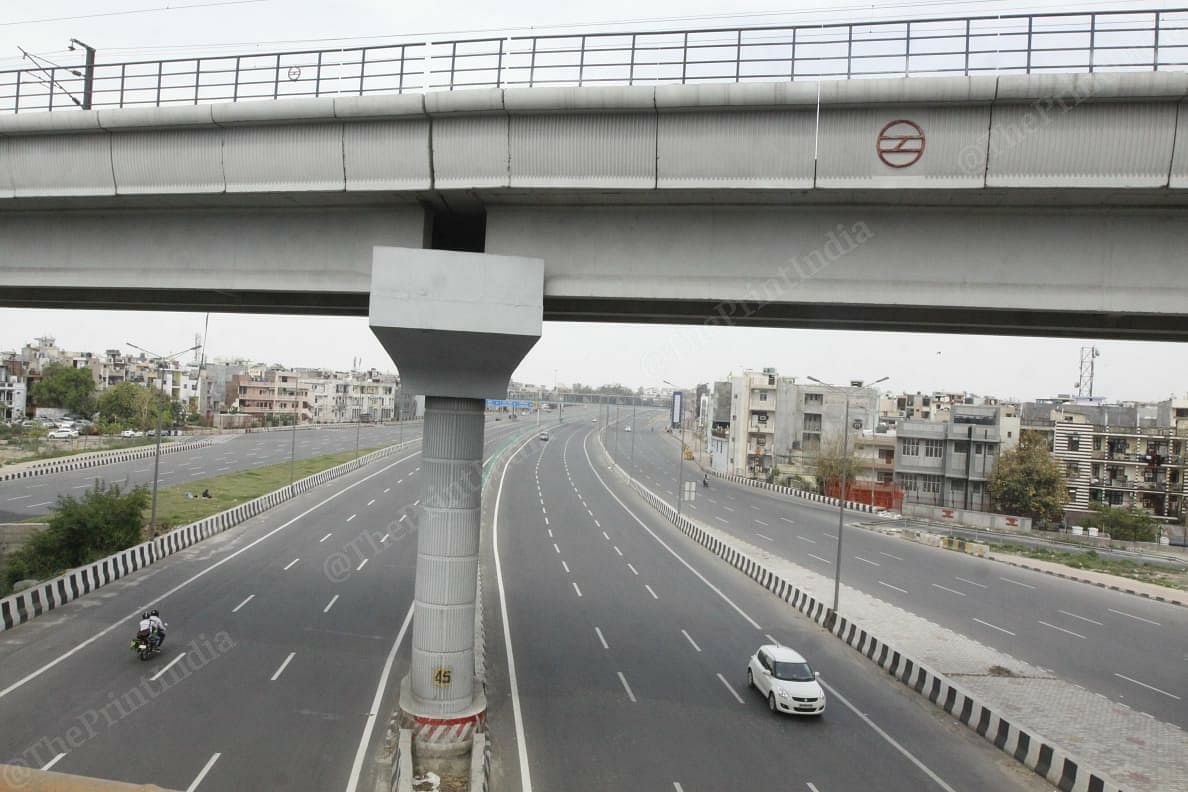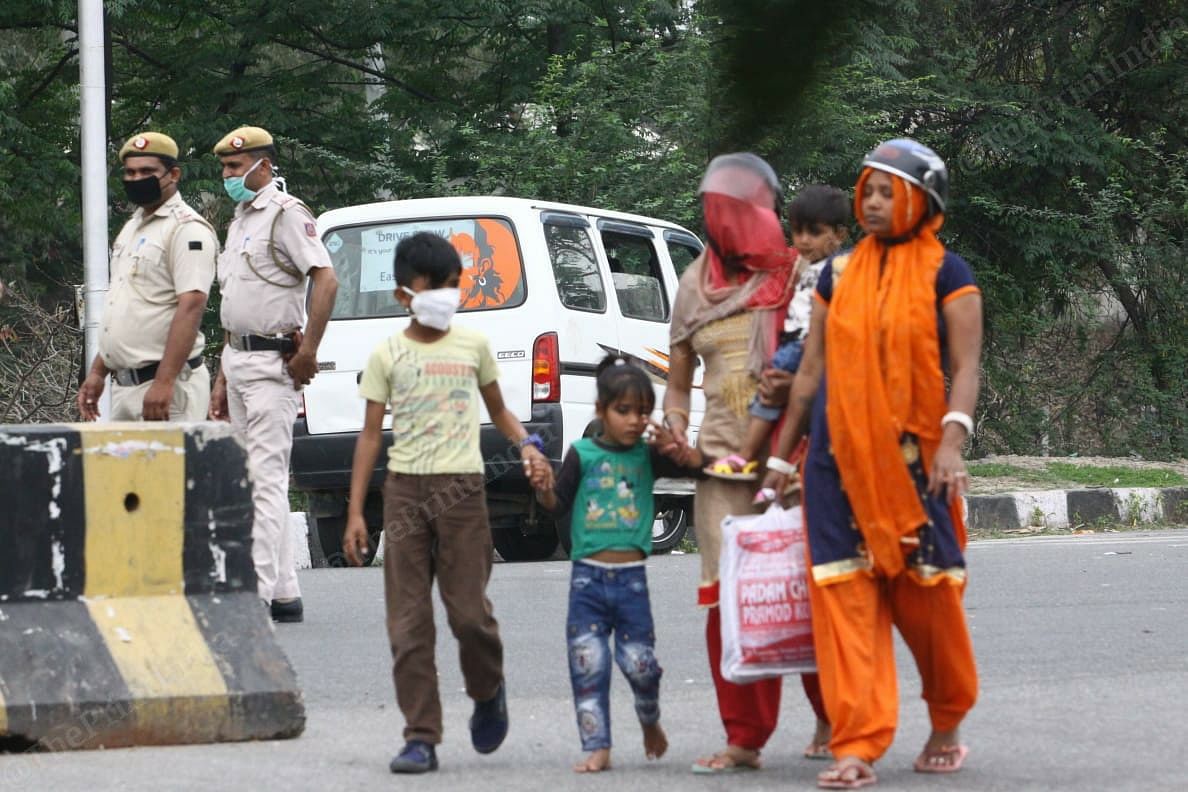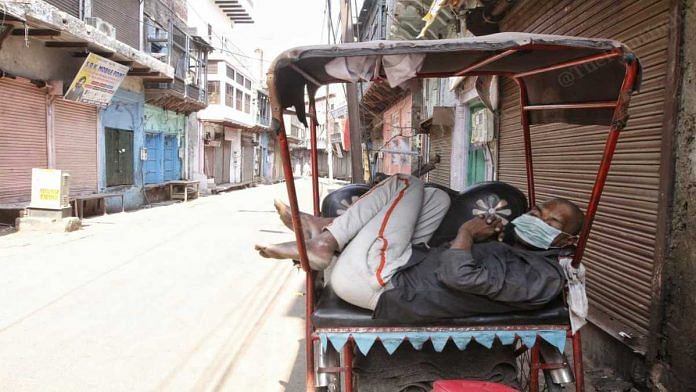New Delhi: Mohd Shaukat, a 35-year-old freight loader and street hawker from Muzaffarnagar in Uttar Pradesh, is worried. The COVID-19 lockdown has left him without any source of income and his savings are dwindling fast. He knows his family back home is waiting for him to send some money, and the stress is eating away at him.
Shaukat is one of presumably hundreds, even thousands, of hawkers, rickshaw-pullers and daily wagers from around India who are bearing the brunt of the curfew imposed in Delhi to check the spread of the novel coronavirus, which has claimed nine lives in the country so far.
Markets across India have shut down amid calls from the central and state governments to stay home and practise social distancing.
While shops dealing in essentials such as groceries, poultry and fruits and vegetables remain open, almost all markets in Delhi currently bear a desolate look in light of the curfew announced by the administration. Street hawkers — the mainstay of any Indian bazaar, functioning from makeshift carts to offer street food and other goods — have been hit particularly hard, as have rickshaw pullers.
While a large number of such workers, many of them migrants from Uttar Pradesh, Bihar, Jharkhand and West Bengal, have left for home since late last week, some stayed back in the hope that things will get better.
However, they haven’t. Meanwhile, the lockdown as well as the drying up of daily income have spawned a range of other problems, primarily accommodation, food, and toilet access.
And going back home is no longer an option for now — all trains have been suspended until 14 April and there are restrictions on travel across Delhi’s borders.
ThePrint spoke to Shaukat at New Delhi’s Qutub Institutional Area in Hauz Khas, where he has fashioned a temporary shelter out of his cart and a sheet of blue tarpaulin.

Swatting off the flies hovering around his face, he said he regretted not leaving for home when he had the opportunity. “Police is repeatedly beating us up and threatening us not to pull over at any place… I found this place to rest after six hours of pulling my rickshaw… I haven’t had a meal for the last 13-14 hours.”
Shaukat said he used to spend his mornings working as a freight loader in shops and sold nankhatai, an Indian cookie, in the evening. This would earn him “at least Rs 800-1,200 per day”. Finding a place to sleep was easier too.
“Both my sources of income have been affected… I’m just left with a few thousand rupees of my savings, which will get over soon as I have to pay the rent of the rickshaw to the owner,” he added.
Shaukat wanted to send some of the money home, but couldn’t as “everyone left in a hurry”. “Now I am extremely worried for my family as they are waiting for money,” he said.
Also Read: When and how people can move around in Delhi during coronavirus curfew
Packed in a room with no fan
Satish Gautam, a rickshaw-puller from Latehar in Jharkhand who works in the ITO area, has been spending his nights in a rickshaw garage on Mirdard Marg, near Maulana Azad Dental Institute, which has been his temporary home in the capital.
His only belonging in this city is a damp and dirty bag hung on a nail drilled into the dilapidated garage wall. It contains some clothes, a soap, a toothbrush, comb and mirror, and a few pouches of hair oil. The entire wall is decked with similar bags of various colours and sizes, all belonging to rickshaw pullers, vendors and hawkers who have also found a home here.
The scene at the garage is one of despair — dozens of men packed into a room without a fan, lying on the floor. Speaking to ThePrint, Gautam pulled up his t-shirt to reveal a scar on his lower abdomen.
“I had to undergo surgery last year after an accident near Asaf Ali Road… it still hurts when I pull the rickshaw,” he said. “I used to get a painkiller from a mohalla clinic nearby but, over the past few days, I have either been turned away or I found the clinic closed,” he said.

“I have a few tablets left, but I need to eat before I can consume them. For that, I have to pull the rickshaw all the way to the New Delhi railway station as food is not available anywhere nearby,” Gautam said. “Also, the nearby toilets have not been cleaned for the last few days, which means we have to either go into the medical college or to the railway station.”
Delhi Chief Minister Arvind Kejriwal had announced Saturday that free food will be served to homeless people at all shelters, a move primarily aimed at helping daily wagers. However, the labourers ThePrint spoke to sounded reluctant to take up the offer.
Rickshaw-pullers and vendors said they couldn’t risk leaving behind their rickshaws or carts, and the night shelters didn’t have adequate parking and security arrangements.
Sugriv Kumar, a 32-year-old rickshaw-puller from Araria in Bihar who caters to some schools in Northeast Delhi’s Shahdara area, said they were worried their vehicles would be stolen, which is why they slept in them.
“A few rickshaw-pullers from my village who work near AIIMS and Safardarjung sleep on footpaths at night, but sleeping on the footpath is dangerous in the night as criminals often snatch away their hard-earned money,” he added.
Upendra Gupta, the national secretary of the National Hawker Federation, an association working for the rights of street vendors, said the lockdown had completely destroyed the livelihood of vendors and hawkers. “Even in the days before the lockdown, they were making just Rs 200-300 a day as compared to Rs 500-800 before. Additionally, lack of food, accommodation and other necessary amenities is making their survival difficult,” he added.
Also Read: UK vaccine trials to a supercomputer taking on virus — top 5 developments on COVID-19 front




money my account not tarnsfar government free money
I have not money my account
bihar 847106
Delhi me kio subhdha nhi milate hai
Dr Sudhakar said k’taka is starting plasma therapy from today ..good